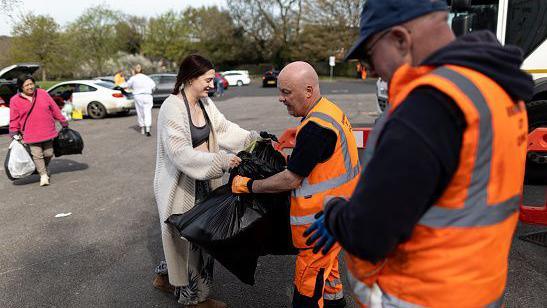Can Birmingham's bin strike be resolved?
Piles of uncollected waste and household rubbish have blighted city streets
- Published
As the summer starts to draw to a close, people in Birmingham have been left wondering what is going to happen with their bin collections as the city's long-running bin strike enters another month.
For many months, residents have complained about "apocalyptic" piles of rubbish outside their homes and the stench of rotting waste thick in the air, alongside infestations of "cat-sized rats".
An all-out strike is in its sixth month, after union members walked out in a dispute with the council over pay and proposed changes to some job roles, which the Unite union said would result in up to 170 workers face an £8,000-a-year pay cut.
However, with the stand-off showing no signs of ending, council leader John Cotton has said they "sought to be reasonable and flexible" but had reached the "absolute limit" of what they could offer.
Members of Unite went on strike on 11 March, over plans to downgrade the roles of drivers. Ever since, the council has disputed the figures on how man staff would be affected and the level of cuts to their wage packet.
Despite conciliation service Acas stepping in to mediate between the two parties in May, talks to resolve the dispute broke down completely last month, with the BBC informed that some bin lorry drivers were now at risk of compulsory redundancy.
But what happens next? And what can residents do about uncollected waste in the meantime?
Why are bin workers on strike?
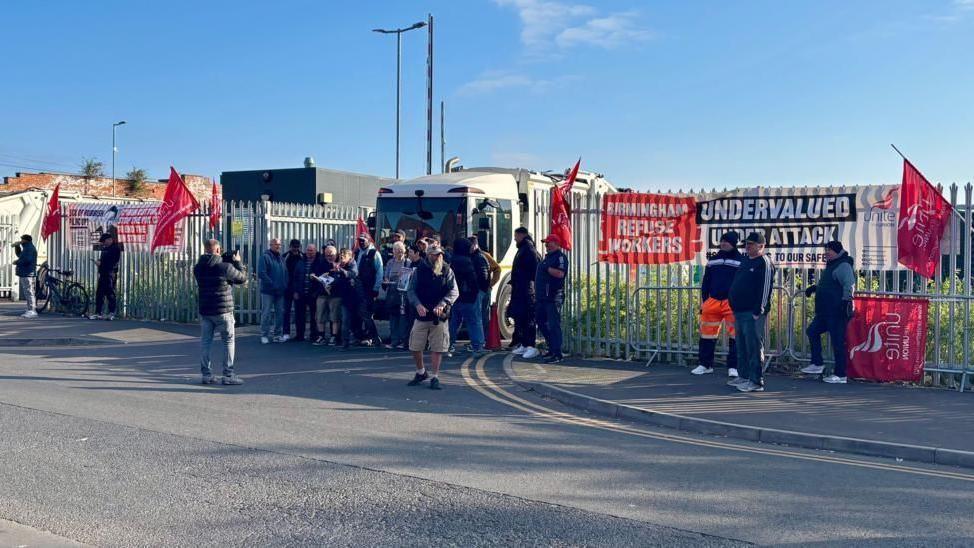
Refuse workers have been picketing outside depots during the industrial action
The dispute initially centred on the council's decision to remove Waste Recycling and Collection Officer (WRCO) roles from some bin workers, which the council said was part of a waste collection service restructure., external
Unite said the change would result in a pay cut for those workers and make all staff less safe and that bin lorry drivers' pay could fall from £40,000 to £32,000.
The union said the WRCO role was important because it brought safety expertise to an "often dirty and dangerous job", citing the death of a Coventry bin worker last year.
But, the city council said the WRCO role was not industry-standard and did not exist in other councils.
It has also stated that all staff affected were given the opportunity to move to alternative roles at their current grade, to train as drivers, take voluntary redundancy or work as a loader with pay protection.
However, leader Cotton admitted in June that some workers would lose money as a result of their proposals.
What stage are we at?
The Acas-mediated talks concluded without a resolution, with Cotton stating the authority was "walking away".
Under the council's job re-evaluation process, the role of driver is set to be downgraded.
Out of 400 bin workers employed by the council, 170 are drivers.
Sources told the BBC in July that about a third had already accepted voluntary redundancy packages.
In June, Unite said the long-running strike could last until December.
At the time, General Secretary Sharon Graham said that the strike "would continue for as long as it takes" and the union would not allow workers to be "financially ruined."
Has the rubbish been cleared in Birmingham?
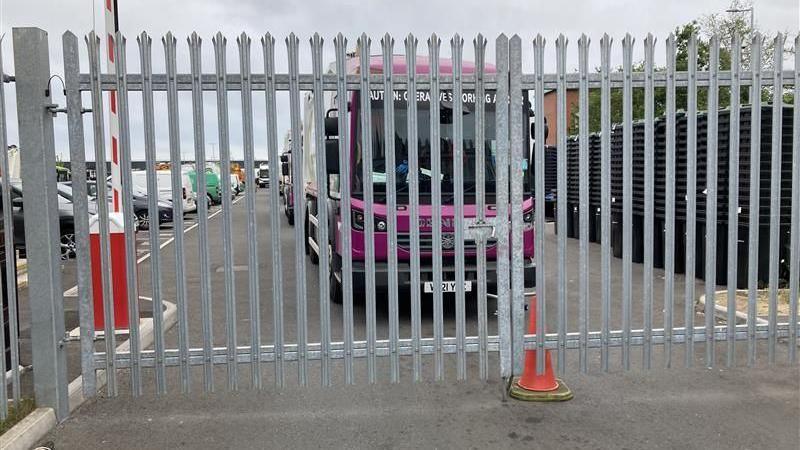
Bin lorries were blocked from leaving a waste depot by striking refuse workers in the past
As the strike continues, the council has been providing contingency collections and using agency crews to successfully collect rubbish in the city.
But on some days, the blocking of waste depots by Unite picket lines has prevented lorries from leaving to alleviate the impact of industrial action.
Residents in some areas previously told the BBC of piles of rubbish on their streets and spoke of how mountains had been removed, but "accumulated again".
John Bryson, professor of enterprise at the University of Birmingham, described the strike as an an "incredibly challenging time" for the council and city residents.
He said the hope was the local authority was taking the right action to deliver a "modern" and "reliable" waste service, while safeguarding its financial future.
"This is about a council that is putting the people of Birmingham first," he added.
Mr Bryson said the union had asked for "far too much" and if the local authority agreed to its terms, it would "open the lid" on a whole series of other pay adjustments.
"These would have been required to ensure that the council avoid legal action regarding equal pay," he said.
"The council and the people of Birmingham would have been unable to avoid the additional costs of these equal pay adjustments."
Should residents dispose of their own rubbish?
Birmingham City Council have told residents to continue to put household waste in, or next to, their wheelie bin, on normal collection days.
Any rubbish that is not collected, should be left out and will be collected as soon as the council are able to.
Missed bin or sack collections can be reported online., external
Residents can also take their waste to a household recycling centre, external, with waste disposal services available in Kings Norton, Castle Bromwich, Perry Barr, Sutton Coldfield and Tyseley.
The authority also has two mobile household waste centres, external visiting all areas of the city.
Recycling collections were suspended, external during the strike so blue recycling bins should not be put out, the authority said.
What happens next?
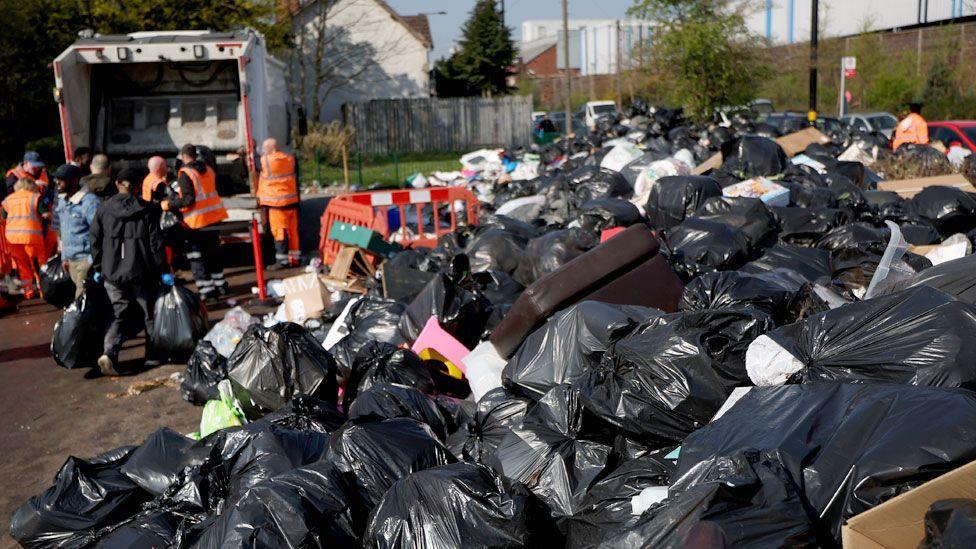
Residents previously spoke of "mountains" of rubbish, with piles of bin bags pictured here in April
Union bosses have met with the new government commissioner, but there have been no further negotiations since talks collapsed last month.
A union spokesperson told the BBC there were "no further updates" at the moment.
The city council said its online factsheet, external about the industrial action was kept "regularly updated".
A BBC political reporter said he had had conversations with people on both sides of the process, who said it was hard to make progress during the summer, while the government is shut down.
We're likely to get more information on what the next steps are as politicians return to work next month.
Get in touch
Tell us which stories we should cover in Birmingham and the Black Country
Follow BBC Birmingham on BBC Sounds, Facebook, external, X, external and Instagram, external.
Related topics
- Published9 July
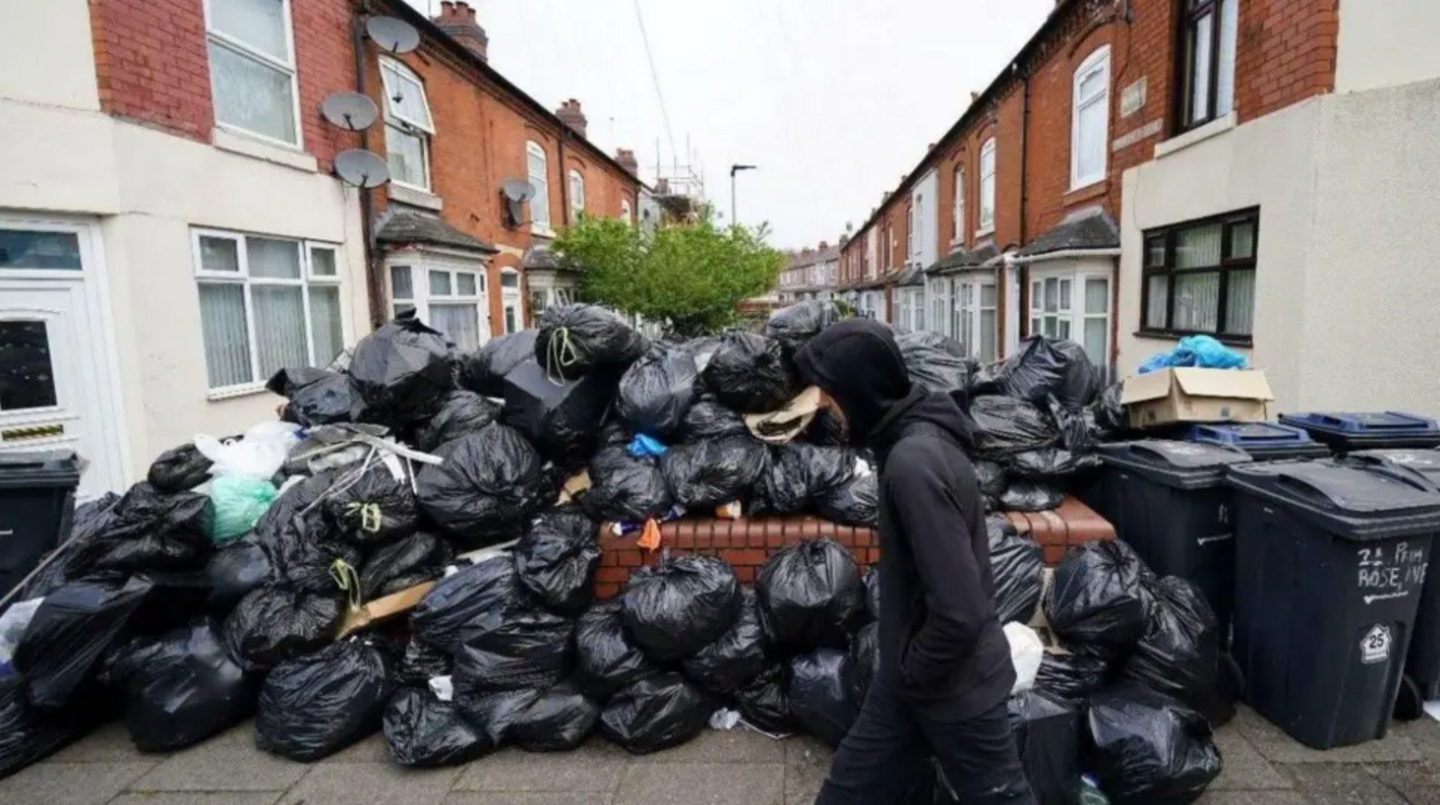
- Published4 July
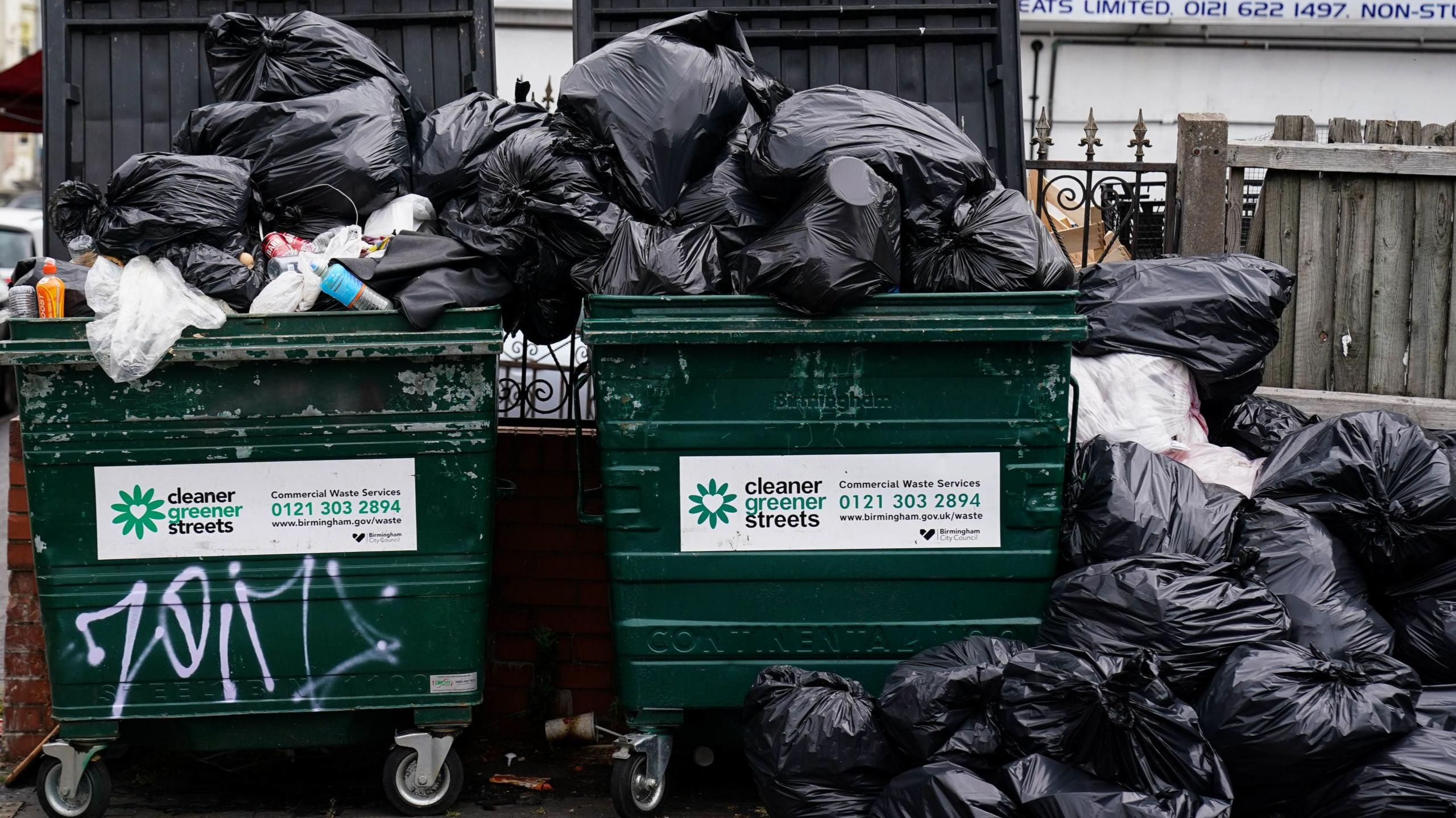
- Published20 June

- Published24 May
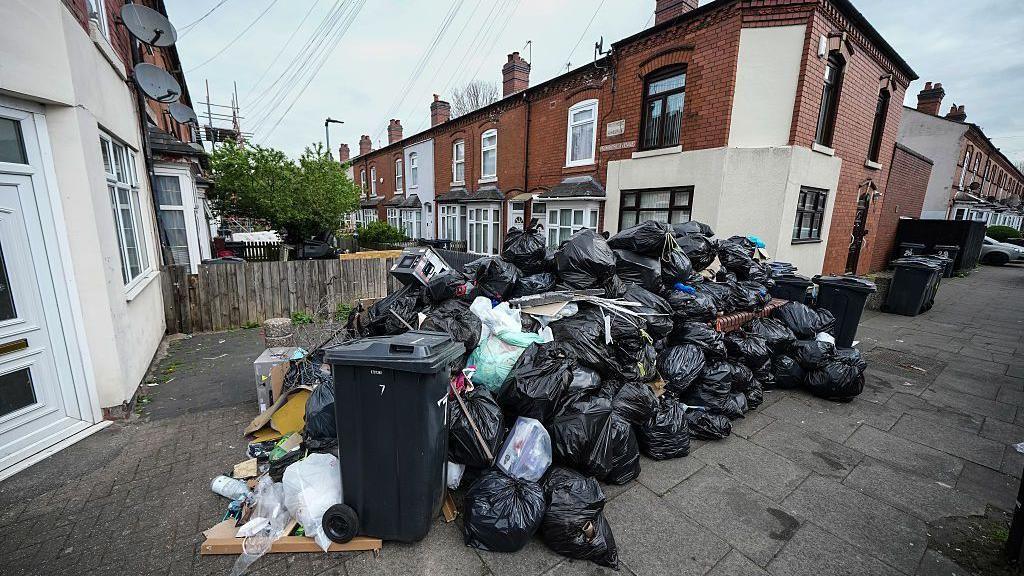
- Published17 November
